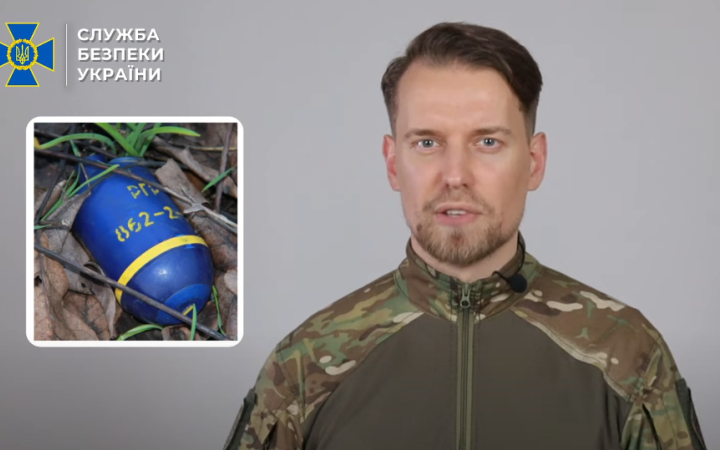The Security Service of Ukraine (SBU) continues to document the widespread use of prohibited chemical weapons by Russian occupation forces against the Defense Forces of Ukraine.
As stated by the SBU press service, this includes, among other things, aerosol grenades like K-51, RGR, and RG-VO, which are equipped with irritant poisonous substances – CS (chlorobenzylidenemalonitrile) and CN (chloroacetophenone).
There are also frequent cases of the occupiers using ampoules containing the poisonous substance chloropicrin.
The use of such means of warfare is prohibited by the Convention on the Prohibition of the Development, Production, Stockpiling and Use of Chemical Weapons and on their Destruction, dated 13.01.1993.
According to the investigation materials, the majority of chemical munitions are being used by the Russian forces in the form of drops from FPV-drones onto the defensive positions of Ukrainian defenders.
After hitting the target, the toxic compounds of the chemical charge affect the mucous membranes of military personnel, primarily their eyes and respiratory organs.
In this way, this way, Russia tries to force the soldiers of the Defense Forces out of trenches and dugouts into the targeted fire of its soldiers.
The largest number of incidents involving the use of such weapons by the Russian Army have been recorded on the eastern front, as well as during strikes on the Nikopol district of Dnipropetrovsk Region.
With the aim of documenting and holding Russians accountable for these crimes, the SBU is not only conducting its own criminal proceedings but also involving relevant international organizations in the documentation of these facts. Specifically, for conducting necessary laboratory examinations and informing the international community, the SBU, through the Ministry of Foreign Affairs of Ukraine, has transferred some material evidence to the Organization for the Prohibition of Chemical Weapons (OPCW) in The Hague.
Based on the results of relevant examinations, this international organization has published three reports confirming the systematic use of chemical agents by the Russian Federation as a means of warfare against Ukraine.
As a result, the EU Council has imposed sanctions on Russian units that are part of the Russian armed forces and are involved in the development and use of chemical weapons in our country. In particular, the EU restrictions included the aggressor country's radiation, chemical, and biological protection troops, as well as the 27th Scientific Center and the 33rd Central Research and Testing Institute of the Russian Ministry of Defense, which are engaged in the development of prohibited chemical agents.
Within the framework of a multi-episode criminal proceeding initiated by SBU investigators under Article 438 of the Criminal Code of Ukraine (war crimes), the investigation continues to bring the military-political leadership of the aggressor state and all involved to justice.
Among others, in December 2024, the SBU issued a notice of suspicion in absentia to Russian General Igor Kirillov – head of the radiation, chemical, and biological protection (RCB) troops. According to SBU counterintelligence and investigation data, this official is responsible for the mass use of chemical munitions against Ukrainian troops.
The pre-trial investigation by the Security Service of Ukraine is ongoing, and comprehensive measures are being taken to bring every Russian war criminal to justice.








